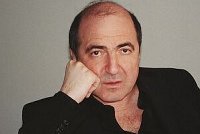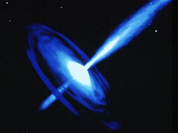Russian authorities file additional charges against Boris Berezovsky
Russian authorities have filed additional charges against Boris Berezovsky in connection with the Kremlin critic's alleged calls for the government's overthrow.

Berezovsky dismissed the accusations as "nothing new" and an ally of the tycoon claimed they were part of a Russian effort to draw attention away from speculation about possible Kremlin involvement in the poisoning death of former KGB officer Alexander Litvinenko in London.
Authorities charged Berezovsky last month in connection with comments he made in an interview with the British newspaper The Guardian in April, said Semyon Aria, one of his lawyers in Moscow.
Berezovsky told the newspaper the Russian leadership could only be replaced by force. He later issued a statement stressing that he did not "advocate or support violence," but Russian prosecutors said his remarks constituted an open call for the violent removal of the government.
According to Aria, prosecutors recently combined the newer charges in a single criminal case with similar charges brought over comments Berezovsky made on Russia's Ekho Moskvy radio in January 2006.
Russian news agencies quoted another Berezovsky lawyer, Andrei Borovkov, as saying the charges were initiated by the Federal Security Service, or FSB. Officials at the Prosecutor General's Office and the FSB refused to comment.
A former Kremlin insider, Berezovsky fell out of favor after President Vladimir Putin came to power, and fled to Britain, which granted him asylum and refused Russian requests for his extradition.
Berezovsky told The Associated Press by telephone that he was unaware of any new charges against him. Citing the previous accusations of coup plotting, however, he said that they would in any case represent "nothing new."
Berezovsky is set to be tried in absentia on charges he embezzled millions of dollars (euros) from Russian airline Aeroflot and laundered some of the money. He fled Russia in 2000 to avoid prosecution in the Aeroflot case.
Berezovsky associate Alex Goldfarb, said the flurry of activity by Russian authorities against the tycoon was "all part of a public-relations offensive meant to repair the damage done by the Litvinenko case."
Litvinenko, a Berezovsky ally, died in a London hospital in November after receiving a dose of radioactive polonium-210. On his deathbed, he blamed Putin for his poisoning, as has Berezovsky. Kremlin allies, meanwhile, have suggested Berezovsky could have had him killed to blacken Putin's reputation.
British prosecutors have named a single suspect, Andrei Lugovoi, and have asked Russia to extradite him. Russia has refused.
Subscribe to Pravda.Ru Telegram channel, Facebook, RSS!




